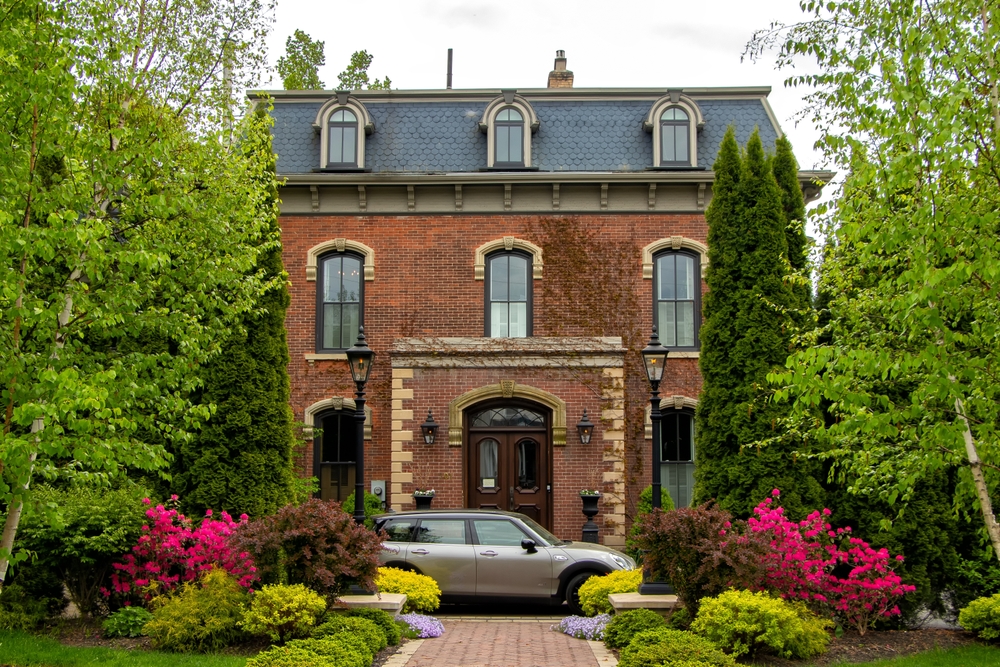Buying or renting a home is a significant decision that impacts your finances, lifestyle, and future. While some people swear by the stability and investment potential of homeownership, others enjoy the flexibility and lower maintenance responsibilities that come with renting. Whether you’re contemplating your first living space or deciding what to do with your residence now, understanding the pros and cons of each option will help you make a more informed choice.
1. Building Equity vs. Flexibility

One of the biggest advantages of buying a home is building equity over time. When you own a home, each mortgage payment contributes to your equity, meaning you are investing in an asset that can appreciate over time. According to Greater Bank, this can be a great way to build wealth, as the value of real estate generally increases. You can leverage this equity for future investments or loans, and eventually, you may own the property outright, reducing your housing expenses significantly. However, this process takes time and ties up a significant portion of your wealth in a less liquid form.
On the other hand, renting offers unparalleled flexibility, especially if you’re not settled on a long-term location. If your job or lifestyle requires frequent moving, renting allows you to relocate with minimal hassle. You are not tied down by a mortgage or concerns about selling a property. Additionally, renting often requires a smaller upfront financial commitment, freeing up your money for other investments. This flexibility can be a significant advantage if you value mobility and variety in your living arrangements.
2. Predictable Expenses vs. Maintenance Responsibilities

When you rent a property, you often benefit from predictable monthly expenses. Rent is typically fixed for the lease term, and many rental agreements include utilities, meaning you can budget more accurately. According to Law Depot, renters usually aren’t responsible for major repairs or maintenance, as those duties fall to the landlord, saving both time and unexpected costs. This predictability can be especially appealing if you’re looking to manage your finances with fewer surprises.
Conversely, owning a home comes with the responsibility for all maintenance and repairs, which can be both time-consuming and expensive. While you have control over modifications and improvements, these come at an additional cost. Homeowners must also budget for property taxes, insurance, and potentially higher utility costs. Although these expenses can be managed with a well-thought-out financial plan, they require a more hands-on approach to budgeting and home management. The upside is that any improvements made can increase your home’s value, potentially offering a return on investment.
3. Tax Benefits vs. Initial Costs

Homeownership comes with several tax advantages, which can be a substantial financial incentive. For instance, the mortgage interest deduction allows you to deduct the interest paid on your mortgage from your taxable income, potentially lowering your tax bill significantly. Furthermore, property taxes can also be deductible if you itemize your deductions. As noted by Investopedia, these benefits can make owning a home more financially attractive, particularly in the early years of a mortgage when interest payments are higher.
On the flip side, buying a home entails significant initial costs, including a down payment, closing costs, and various fees. These upfront costs can be a barrier for many prospective homebuyers and may limit your ability to invest elsewhere. In contrast, renting usually requires a security deposit and the first month’s rent, which is considerably less than a down payment. While you don’t gain the tax benefits of homeownership, the lower initial costs of renting allow you to allocate your funds toward other investment opportunities or savings. This can provide a more diversified financial portfolio and potentially greater returns over time.
4. Stability vs. Investment Diversification

Owning a home can provide a sense of stability and belonging, as you have control over your environment and no risk of a landlord selling the property or increasing your rent unexpectedly. This stability is particularly appealing to families or individuals looking to establish roots in a community. Homeownership also allows for personalization and renovations to suit your tastes, enhancing your comfort and enjoyment of your living space. However, this stability often comes with a long-term financial commitment, limiting your ability to pursue other opportunities.
Renting, on the other hand, offers the advantage of investment diversification. Instead of tying up your wealth in a single asset, you can invest in a broader range of opportunities. This could mean putting more into retirement accounts, stocks, or other financial instruments that can offer different risk and return profiles. Diversification can protect against market volatility in one area, providing a more balanced financial approach. The ability to diversify your investments can be particularly advantageous in uncertain economic times or if you prefer a more hands-off investment strategy.
5. Personalization vs. Lower Financial Risk

One of the joys of homeownership is the ability to personalize your space completely. You can remodel, paint, and decorate without needing landlord approval, allowing you to create a home that perfectly reflects your style and meets your needs. This personalization can also potentially increase the resale value of your property, offering a financial return on the improvements you make. However, these changes require a financial investment and carry the risk that not all improvements will increase your property’s value.
Renters, conversely, often face limitations on how much they can alter their living space. While this might seem like a downside, it also means lower financial risk. You are not responsible for major repairs or renovations, reducing the need for significant financial outlays. Additionally, if the housing market declines, renters are not affected by falling property values. This lower financial risk can provide peace of mind and financial stability, allowing you to focus on other aspects of your life or financial goals without the worry of property-related financial pressures.
6. Pride of Ownership vs. Minimal Commitment

Owning a home often brings a sense of pride and accomplishment. Many individuals view homeownership as a hallmark of success and a significant milestone. This pride comes from the fact that your home is not just a place to live, but a tangible asset that you own and control. The emotional satisfaction and social status associated with owning a home can be significant motivators for many people. However, this pride comes with the responsibility of long-term financial and maintenance commitments.
Renting a home allows for a more minimal commitment, which can be particularly appealing to those who prioritize flexibility. Without the responsibility of a mortgage or the pressure to maintain a property, renters can enjoy their living space without as much stress. This can be especially beneficial during life transitions, such as job changes or personal developments, where you may not want to be tied down. The freedom from long-term commitments means you can adapt to new opportunities and changes in your life without the burden of homeownership responsibilities.
7. Long-term Financial Gain vs. Short-term Savings

One of the key financial advantages of buying a home is the potential for long-term financial gain. As you pay down your mortgage, you build equity in your home, which can serve as a critical financial asset. Over time, real estate tends to appreciate, potentially increasing the value of your investment. This can lead to significant gains when you sell the property, making homeownership a valuable part of a long-term financial strategy. However, these gains are not guaranteed and depend on factors like the housing market and location.
Renting, however, offers short-term savings that can be quite appealing, especially for those with limited financial resources. Without the need for a large down payment and additional costs associated with buying a home, renters can allocate their finances elsewhere. These savings can be used for immediate needs, investments, or building an emergency fund. While renting may not offer the same long-term financial growth as owning a home, the short-term financial benefits provide flexibility and security in managing your financial priorities. This approach can be particularly advantageous for those who prefer to remain agile in their financial planning.
8. Community Ties vs. No Strings Attached

Owning a home often fosters a deeper sense of community ties and belonging. When you own a property, you may feel more invested in the neighborhood and local community, leading to stronger relationships with neighbors and participation in community events. This sense of belonging can enhance your quality of life and provide a supportive network. However, these community ties may also come with responsibilities, such as community association fees or participation in neighborhood governance.
Renting offers the advantage of living without strings attached, which can be particularly appealing for those who value independence. You can move without the burden of selling a property or dealing with long-term commitments. This independence allows you to explore different communities and lifestyles without the constraints of property ownership. While you may not develop the same level of community ties as a homeowner, the ability to come and go as you please offers a kind of freedom that many find invaluable.
9. Customization Opportunities vs. Move-in Ready

One of the joys of homeownership is the opportunity to customize and tailor your home to fit your exact preferences and needs. Whether it’s knocking down walls for an open-plan living space or installing a backyard pool, the possibilities are virtually endless. This customization can increase your comfort and satisfaction, transforming your house into a true reflection of your lifestyle. However, these changes often require significant investment and time, which may not always yield a financial return on resale.
Renting, on the other hand, offers the convenience of a move-in ready space, often with modern amenities and features included. This is particularly advantageous for those who want to avoid the hassle of renovations or do not have the time or resources to invest in home improvements. While you may not be able to make significant changes, you benefit from a property that meets your immediate needs without the added responsibility of maintenance or upgrades. This convenience allows you to focus your time and energy on other pursuits, knowing your living space is taken care of.
10. Mortgage Stability vs. Lease Flexibility

Once you lock in a fixed-rate mortgage, your monthly payments remain stable over time, providing predictability and financial planning security. Homeowners benefit from the stability of knowing their housing costs won’t fluctuate significantly, which is particularly advantageous in economic climates where rents may rise. This stability can aid in long-term financial planning and allow for better budgeting over the years. However, mortgage stability requires a long-term commitment and the assumption of property-related costs and responsibilities.
Renters, however, enjoy the flexibility of lease agreements, which provide the opportunity to reevaluate living situations regularly. Lease terms can range from month-to-month to a year or more, offering the ability to relocate as circumstances change. This flexibility is ideal for those who anticipate career changes, relocations, or lifestyle shifts. Additionally, renters do not face the risk of property depreciation or market downturns impacting their financial situation. While leasing does not provide the same predictability as a fixed mortgage, the ability to adapt to changing needs and opportunities can be a significant advantage.
11. Emotional Satisfaction vs. Financial Portfolio Expansion

Owning a home often brings emotional satisfaction and a sense of achievement. Many people dream of owning their own home, seeing it as a symbol of success and stability. This sense of ownership can provide comfort and pride, enhancing overall life satisfaction. The emotional connection to a home, however, can sometimes cloud financial judgment and lead to decisions driven by sentiment rather than practicality.
Renting, on the other hand, allows for financial portfolio expansion by not tying up significant capital in a single asset. Renters can allocate their funds toward a variety of investment vehicles, including stocks, bonds, and retirement accounts. This diversification can lead to a more robust financial portfolio and provide potential for higher returns. By not being emotionally attached to a property, renters can make more objective financial decisions and adapt their strategies to changing circumstances, maximizing their financial growth opportunities.
12. Potential Passive Income vs. Avoiding Landlord Duties

For homeowners, especially those with additional properties, there’s the potential to earn passive income through rental properties. This can be an excellent way to supplement your income, taking advantage of real estate investments to build wealth. With the right property and management, rental income can cover mortgage payments and other expenses, turning a home into a profitable venture. However, being a landlord comes with responsibilities, including maintenance issues, tenant management, and potential legal challenges.
Renters, however, avoid the duties and responsibilities that come with being a landlord. Without the need to manage tenants or property issues, renters can focus on their personal and professional lives without the added stress. This freedom allows individuals to pursue other interests and opportunities without being tied down by the demands of property management. While renters don’t benefit from rental income, they also avoid the potential headaches and time commitments associated with being a landlord, enjoying a simpler, more flexible lifestyle.
13. Forced Savings vs. Investment Liquidity

Homeownership acts as a form of forced savings, as each mortgage payment contributes to building equity in your property. This can be beneficial for individuals who might otherwise struggle to save money, as it requires a disciplined financial approach. Over time, the equity built can serve as a financial safety net or be leveraged for other investments. However, this forced savings comes at the cost of liquidity, as accessing the equity requires selling the property or taking out a loan.
Renting allows for greater investment liquidity, offering the flexibility to allocate funds to various financial instruments. Without the obligation of a mortgage, renters can invest in more liquid assets, such as stocks or bonds, that can be easily accessed if needed. This liquidity can be particularly advantageous in times of financial need or when quick access to funds is necessary. While renting does not provide the same forced savings as homeownership, the ability to manage and adjust investments with ease is a significant financial advantage.
14. Long-term Security vs. Short-term Adaptability

Homeownership offers long-term security, as owning a property provides a stable place to live without the concern of rent increases or lease terminations. This security is especially attractive to families or individuals planning to stay in a location for an extended period. The stability of homeownership allows for long-term planning and investment in the community, fostering a deeper sense of belonging. However, this long-term security requires a commitment to both the property and its associated financial responsibilities.
Renting provides short-term adaptability, allowing individuals to adjust to changes in personal circumstances, career, or lifestyle without being tied to a long-term property commitment. This adaptability is ideal for those who anticipate changes or prefer to keep their options open. Renters can explore different neighborhoods, cities, or even countries without the burden of selling a property. While this adaptability sacrifices the long-term security of homeownership, it offers the freedom to embrace new opportunities and experiences as they arise.
15. Generational Wealth vs. Financial Flexibility

Owning a home can be an effective way to build generational wealth. As a homeowner, you can pass down the property to heirs, providing them with a valuable asset and potentially a mortgage-free living situation. This transfer of wealth can offer your family a financial advantage and stability for generations. However, the responsibility of maintaining and managing the property also becomes part of the legacy, which may not be ideal for all families.
Renting prioritizes financial flexibility, allowing individuals to adapt their financial strategies based on current needs and goals. Without the need to invest heavily in a single asset, renters can explore a variety of investment opportunities that align more closely with their financial objectives. This flexibility can facilitate significant financial growth and provide the ability to adjust investments as market conditions change. While renting does not contribute to generational wealth in the same way as homeownership, it offers a dynamic approach to financial planning that can yield substantial benefits over time.
This article is for informational purposes only and should not be construed as financial advice. Consult a financial professional before making investment or other financial decisions. The author and publisher make no warranties of any kind.








